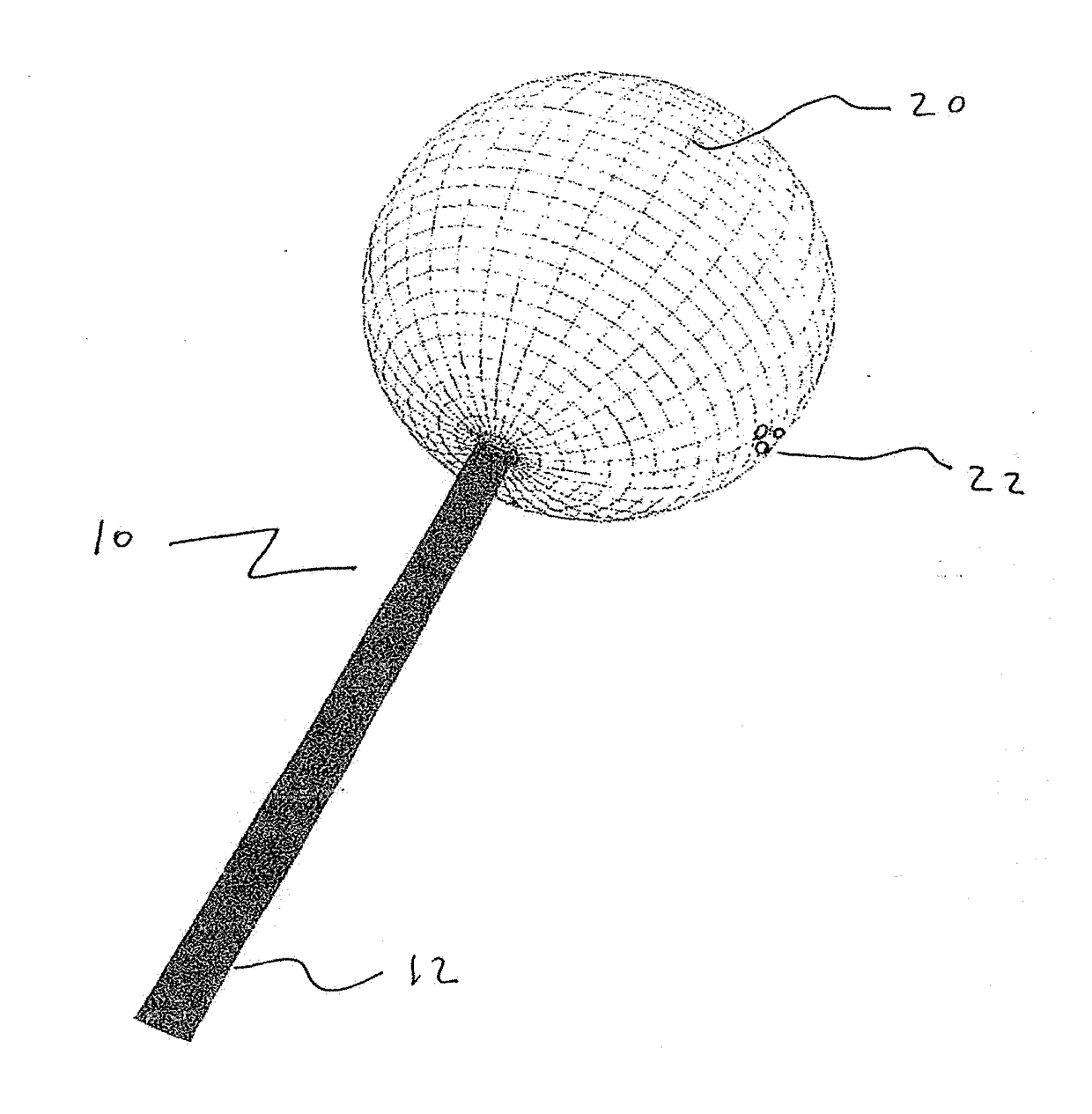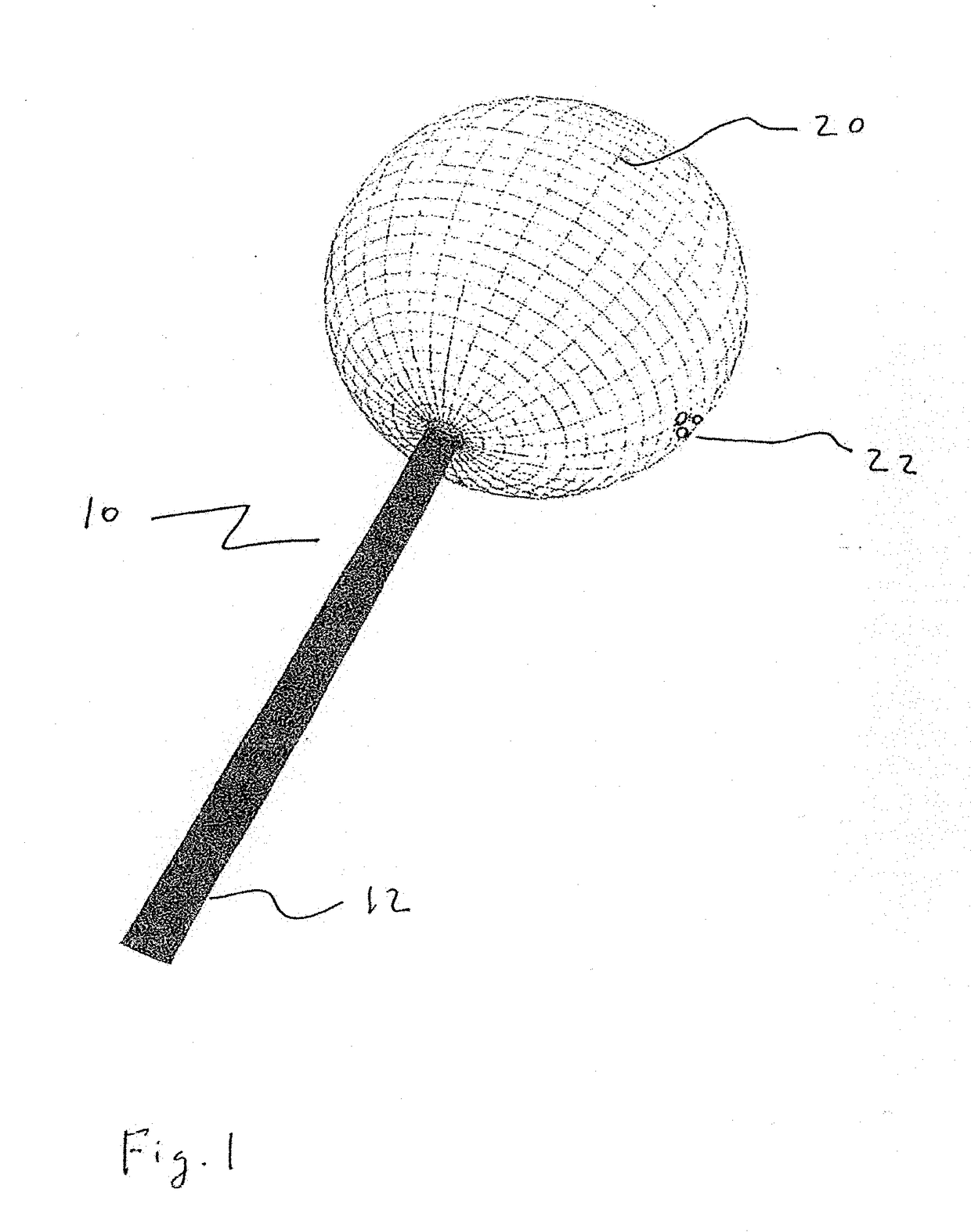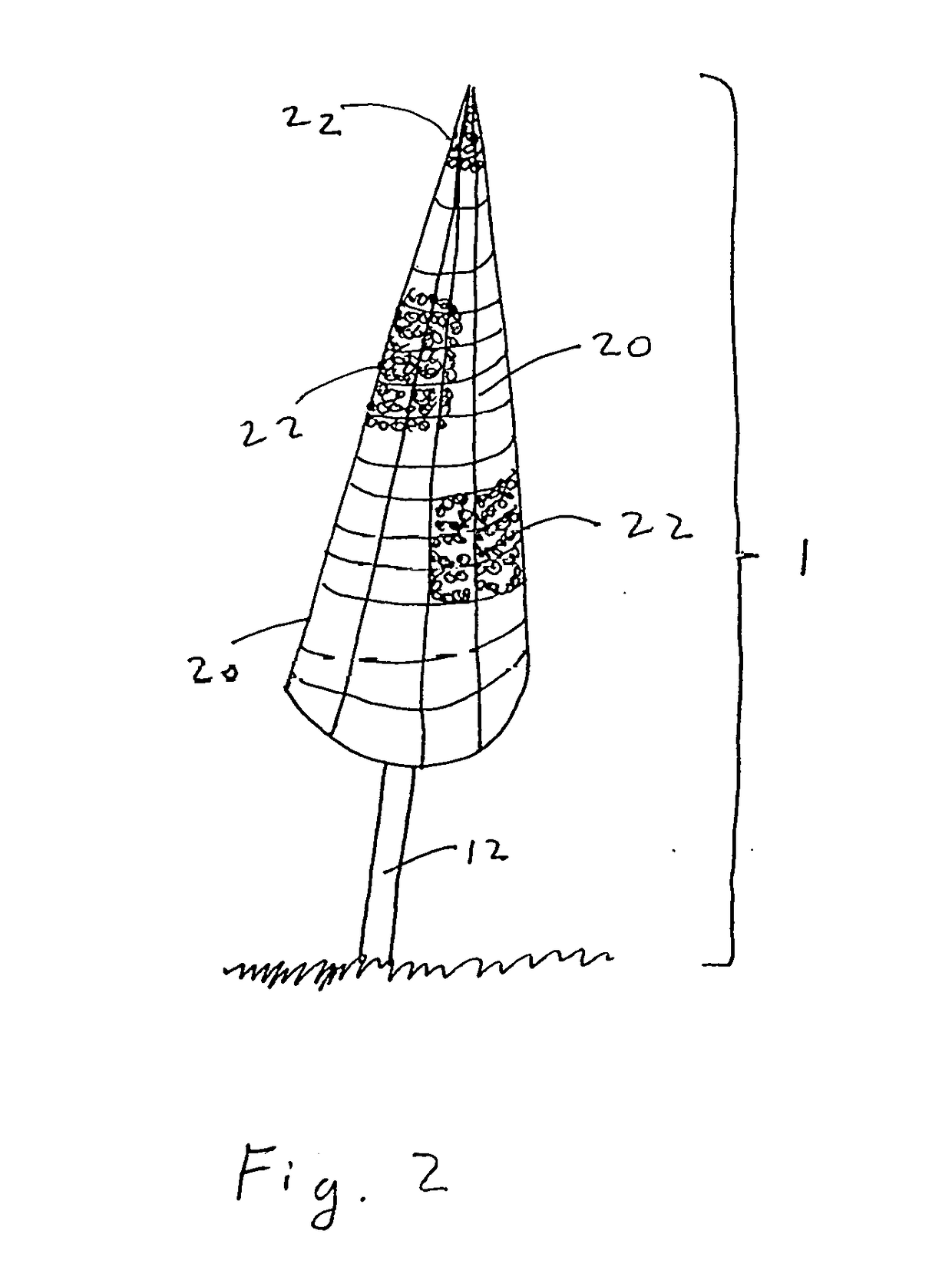Alternative use for hydrogel intrasaccular occlusion device with vertically oriented reinforcement members for structural support
a technology of vertical orientation and hydrogel, which is applied in the field of endovascular treatment, can solve the problems of device failure, aneurysm recurrence, medical difficulties still arose, etc., and achieve the effects of reducing blood permeability, promoting thrombosis and healing of aneurysms, and increasing the coverage of metal mesh implants
- Summary
- Abstract
- Description
- Claims
- Application Information
AI Technical Summary
Benefits of technology
Problems solved by technology
Method used
Image
Examples
Embodiment Construction
[0056]The present disclosure teaches the placement of amorphous hydrogel (22) within or coating surfaces of intrasaccular occlusion devices, which are delivered proximally to target vessels using wire delivery systems (12). Said intrasaccular occlusion devices are typically housed in intrasaccular tools during the transport process.
[0057]Coating said intrasaccular occlusion devices, particularly an extension such as treatment mesh (20), allows for the implementation of a therapeutic endovascular treatment.
[0058]Said amorphous hydrogel (22) is adhered to select surfaces of said device (20) designed to implement an endovascular treatment and is contained by said device designed to implement an endovascular treatment. Alternatively, Said amorphous hydrogel (22) is adhered to select surfaces of said device (20) designed to implement an endovascular treatment or is contained by said device designed to implement an endovascular treatment. These alternatives are not necessarily mutually ex...
PUM
 Login to View More
Login to View More Abstract
Description
Claims
Application Information
 Login to View More
Login to View More - R&D
- Intellectual Property
- Life Sciences
- Materials
- Tech Scout
- Unparalleled Data Quality
- Higher Quality Content
- 60% Fewer Hallucinations
Browse by: Latest US Patents, China's latest patents, Technical Efficacy Thesaurus, Application Domain, Technology Topic, Popular Technical Reports.
© 2025 PatSnap. All rights reserved.Legal|Privacy policy|Modern Slavery Act Transparency Statement|Sitemap|About US| Contact US: help@patsnap.com



